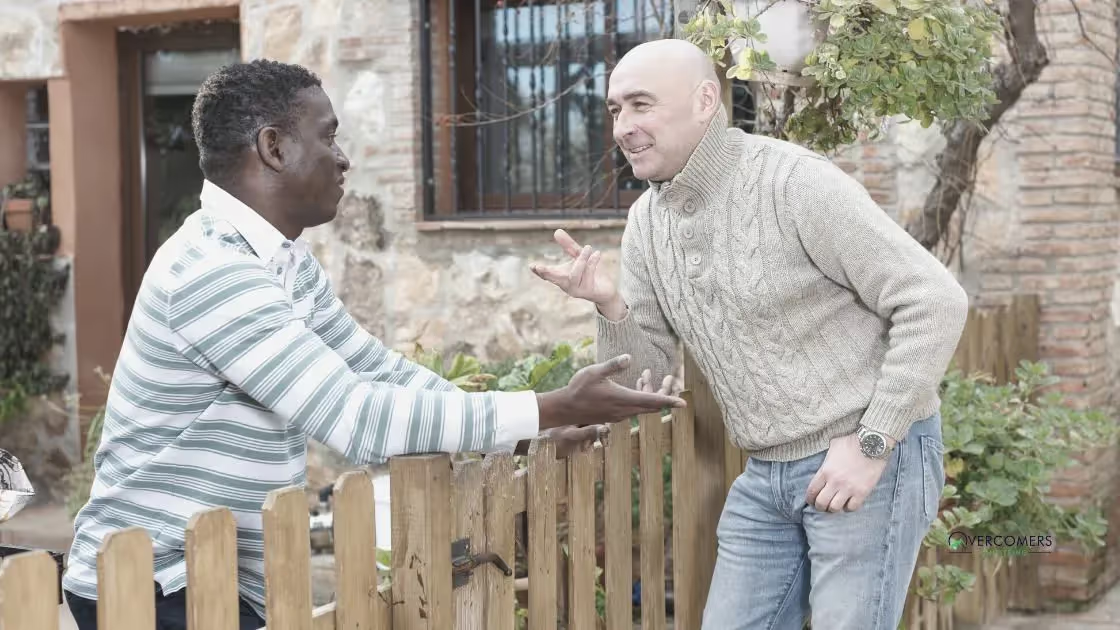Dealing with grief is a complex process for many people. It is important when offering grief support to be mindful of how you discuss it with a grieving...

Dealing with grief is a complex process for many people. It is important when offering grief support to be mindful of how you discuss it with a grieving person. Certain words, phrases, and topics might be upsetting or unhelpful for a grieving person. Platitudes should be avoided when you discuss with a grieving person. Platitudes are usually insincere, common phrases or words about grief. Some platitudes are no longer effective in the present day and might even be offensive now. When trying to console a grieving person, you might begin to speak about the strength of a grieving person. This can place an additional burden on the grieving person to be strong. Instead, consider offering support without any extra pressure for a grieving person. Sometimes, people mention things they should not discuss with a grieving person because they let their curiosity get the better part of them. After all, curiosity is a natural part of humans. However, this is likely to cause some discomfort for a grieving person. Find out five things you should not discuss with a grieving person below:
A grieving person is likely enduring a lot of pain and other sad feelings. It is also likely accurate to say that dealing with grief will take courage and strength at specific points. However, discussing the strength of a grieving person can feel pretentious. For instance, a grieving person might not feel strong or view their actions from a point of strength. Speaking about a person's strength when they feel everything but strong can be upsetting to reconcile. It could also create pressure to remain to be strong. There is also a temptation to mention how a grieving person has to be strong for other people. This appears to remove space for the person on the receiving end of such a statement to grieve. Being strong can be a burden for some grieving people. Try not to discuss with a grieving person about their strength or how they have to be strong. Although speaking about the strength of a grieving party might seem like a compliment, it can be a burden for a grieving party. You might be better off offering positive support to the grieving person.
Some certain words and phrases might come to you naturally when speaking to someone dealing with grief. A number of these words or phrases are platitudes. Platitudes are generally impersonal, cliche statements. It is likely that you picked up several platitudes from the media or from watching other people. For instance, you might say, "everything happens for a reason," or "at least you are young and can get remarried". Platitudes belong in the category of things you should not discuss with a grieving person. Although your intentions might be positive, platitudes can be hurtful to a grieving person. Talking about the youth and prospects of remarrying to a grieving person can feel like it is trying to reduce the experience of the grieving party. In some cases, the platitudes try to justify another person's loss. Rather than hurling out platitudes, try to pause and ask yourself questions. Consider if you mean the words that you are going to say. Also, consider if you are trying to justify what happened.
A natural part of being human is being curious. You might be tempted to find out what's causing grief. However, it is vital to understand when you can ask about what happened. When interacting with a grieving person, try to avoid instantly inquiring about what happened. It is possible the situation was very upsetting for the grieving person. The grieving person might also have had to recount the situation several times. You could try to evaluate the circumstances before approaching the grieving person. Also, be mindful of your relationship with the grieving part. This will help you to determine whether you should not discuss with a grieving person what happened. The character of the grieving person will determine the best method to speak with the grieving person. A safer bet might be to speak about other memories of the departed persons. Some people would be excited to share more positive comments, and others might be more private, which you could respect.

Empathy is a kind attribute. When a person struggles with grief, you will likely feel empathetic towards them. However, being mindful of your words when speaking with a grieving person is essential. It is common to speak about understanding what a person is going through when grieving. Sometimes, this might be misguided unless you have a similar experience. One of the things you should not discuss with a grieving person is your own feelings at the expense of speaking about their feelings. Even when you have experienced something similar, each person grieves differently. You can simply share your experience without making a comparison of the experiences. This way, a grieving person could perhaps find solace in your words. Try not to assume that you understand how a person is feeling. Also, try to resist making grieving about yourself. It is easy to dwell on how you feel and moves on from how the grieving person feels.
One of the things you should not discuss with a grieving person is how long they need to grieve. Many people misunderstand grief and simply try to allocate a particular time to grieve. However, grief cannot be timed. For instance, some people would mention the time since a person began grieving. You might hear people speak about how 'it has been six months. Counting down the timeframe for grief using rough estimates is unnecessary. It is possible that for a person, grief does not have an end. Any attempts to monitor or pace the manner a person grieves might make the grieving party feel like they have only a certain time of grief. You could hurt the natural grieving process of such a grieving person. Although it is understandable, you might want things to return to how they used to be. Grief likely brings permanent changes to a person. One of the best ways to support a grieving person is to understand and accept the changes.
Grief is a delicate process that could be upsetting for a grieving party. It is crucial to offer grief support. Certain words, phrases, and things you should not discuss with a grieving person include platitudes, their strength, what happened, the timeframe for grief, and your feelings.
https://www.purewow.com/wellness/things-not-to-say-to-someone-grieving
https://www.self.com/story/things-you-should-never-say-to-someone-grieving
https://wellsanfrancisco.com/how-to-talk-to-a-grieving-person/
https://www.eterneva.com/resources/helping-a-grieving-friend
https://edtaylor.org/2022/07/06/5-things-not-to-say-to-your-grieving-friend/
If you find yourself having difficulty managing daily activities due to lingering feelings associated with grief such as sadness, anger, guilt or numbness; then it might be beneficial for you to seek professional help through our Colorado Springs Grief Counseling services. Our therapists are trained in helping clients identify their needs and goals related to grieving.
Grief can seem worse in the morning as the reality of the loss is often one of the first thoughts upon waking. This can be particularly true if you shared many mornings with the person who has passed away during wonderful years spent together.
The duration of grief counseling varies for each individual, depending on the severity of their grief and their progress in therapy. Our therapists will regularly assess your progress and adjust your treatment plan as needed.
Dealing with grief involves allowing yourself to experience grief, seeking support from family members or a mental health professional, and taking care of your physical health. It's also important to remember that everyone grieves differently and there's no "right" way to grieve.
Dealing with someone who is addicted to drugs or alcohol can be difficult. It is important to remember that addiction is a disease, and the addict is not responsible for their behavior. You can offer support and understanding, but it is important to set boundaries. You can also get help for yourself through therapy or counseling.
Addressing grief is crucial because unresolved grief can significantly impact your quality of life, overall well-being, and ability to function in daily activities. Left unaddressed, grief can lead to more severe mental health issues, such as depression, anxiety, and complicated grief.